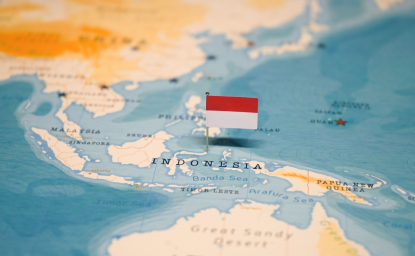South Africa’s accusations that Israel is guilty of genocidal conduct” in Gaza were taken up by the International Court of Justice in The Hague on January 11, 2024, amidst predictions that the process would take years before the Court could reach a decision. The Court has issued a preliminary recommendation that Israel do more to protect civilian life, but a definitive ruling remains far into the future. No matter what the Court eventually decides, it will come far too late and will have far fewer teeth than needed to halt the current massacre.
Regarding the Gaza conflict, and indeed most major conflicts, the so-called post-World War II world order is a house of cards, a set of abstract ideas that topple when confronted with specific situations.
A massacre—simply defined by the Cambridge dictionary as the act of killing a lot of people—is undoubtedly taking place in Gaza. Whether the International Court of Justice accepts Israel’s claim that those killings constitute legitimate self-defense or sides with South Africa in concluding they constitute “genocidal conduct,” nothing will change in practice. Regarding the Gaza conflict, and indeed most major conflicts, the so-called post-World War II world order is a house of cards, a set of abstract ideas that topple when confronted with specific situations.
Contradictions in international law
Since 1945, The United States and international institutions have done an admirable job of codifying and putting into law new principles, including the Universal Declaration of Human Rights, the recognition of the right of peoples to self-determination, strict limits to the actions of occupying powers, the convention against genocide, and the creation of international adjudicating mechanisms. On paper, the changes are immense: until the launching of the League of Nations and the UN, major powers could occupy countries with impunity and do whatever they wanted there, including creating new borders, destroying political entities and forming new ones, or removing people to different locations when their presence was considered inconvenient.
Colonialism was legal, with the only limit being the power of the colonizing countries. Occasionally, colonial powers negotiated among themselves to avoid conflict, as European countries did in Berlin in 1884 when they agreed on the partition of Africa, but they never consulted the people affected. And certainly nobody at the time questioned the United States’ conduct in settling its vast territory, most of which would be illegal now.
If we take these principles as rules that actually control the actions of international actors, there are reasons to decry the danger that rising powers like China or rogue states like Iran pose to a world order based on universal principles and laws. The reality, starkly highlighted in Gaza, is that such order only exists on paper. Even countries that are supposedly allies and friends do not agree on the principles they use to justify their actions. Principles that appear clear in theory become vague and even contradictory in practice. There is nothing difficult to understand about the idea of genocide, but it will take the ICJ years to adjudicate the issue in Gaza.
I will limit this discussion to just four contradictory and confusing principles that have been invoked frequently by the countries involved in the Gaza conflict: the right of a state to defend itself; the right of people to self-determination; the strict limits international law imposes on the actions of an occupying power; and what constitutes terrorism.
A state has a right to defend itself. This is not contested, but there is no agreement about what defending oneself involves.
Illusions of international order
A state has a right to defend itself. This is not contested, but there is no agreement about what defending oneself involves. Do states have to be attacked before they can claim self-defense? Or do states have the right to preemptive self-defense, as the United States argued when invading Iraq in 2003? And what, if any, are the limits to what a state can do in the name of self-defense? In the specific case of Gaza, do the atrocities committed by Hamas on October 7 justify Israel’s systematic destruction of over 80 percent of buildings in Northern Gaza, the killing of over 25,000 Palestinians, the obliteration of its already meagre economy, and the forced relocation of the population to increasingly small areas in the south of the strip?
On the other side of the ledger, does the Palestinian population of Gaza, which is clearly under attack by Israel, have a right to self-defense even if there is no Palestinian state? Principles appear silent on this issue, as far as a layperson can determine. It is easy to find endless discussions of the rights of states or individuals to self-defense. A search for the right of a group to defend itself is fruitless. Hence, Palestinians do not appear to have the right to defend themselves—the use of force on their part is automatically defined as terrorism.
On the other hand, Palestinians appear to have the right to self-determination. That principle is no longer controversial, particularly now that the large colonial empires of old have ceased to exist. The United Nations charter states that people have the right to choose their sovereignty and international political status. Israel justifies its existence in part by invoking that right: Jews as a people have a right to self-determination and Israel, as the only Jewish state, has a right to exist as the embodiment of that right. In that perspective, Hamas and other radical organizations that refuse to recognize the legitimacy of Israel are violating the Jewish right to self-determination.
But many Israelis, and not only extremists, reject a two-state solution, hence the Palestinian right to self-determination. The problem in this case is, by and large, not disagreement about the principle but Israel’s refusal to allow Palestinians to exercise that right by forming their state as the embodiment of self-determination and the unwillingness of major powers to confront Israel on this issue. The United Nations first called for the formation of a Palestinian state in 1947, to take place simultaneously with that of a Jewish state. It did not happen then, and although calls for a “two-state” solution have been the center of all peace initiatives, it has not happened in the following 75 years. Now, most of the 144 Jewish settlements and over 100 less formal outposts in the West Bank and East Jerusalem would have to be removed in order to allow a Palestinian state to be formed. This is not likely to happen soon.
Loose principles
The principles of the post-World War II order are also very clear about the limits of what an occupying power can do in the territory it controls. In particular, the transfer of population groups is absolutely prohibited, even if voluntary. Property cannot be expropriated, and collective punishment is prohibited. These are dramatic changes from the past but have no effect. The principles did not keep some 700,000 Palestinians from being expelled from their homes in 1948. Even today, Palestinian land is being lost in the West Bank and East Jerusalem on an ongoing basis, and many Israeli officials are openly advocating the removal of a large number of people from Gaza and putting pressure on countries ranging from Egypt and Jordan to some African countries to accept them.
The problem in the end is that the term terrorism is applied when it suits the beholder.
The concept of terrorism is the vaguest and, thus, the most susceptible to political interpretations. There is no officially recognized definition of terrorism—the United Nations could never agree on one. Broadly, terrorism is understood to be the unlawful use of violence against civilians to achieve political goals. In other words, the key factor is not the use of violence per se but the reasons why it is being perpetrated and whether violence is legal. War, which certainly entails the use of violence in the pursuit of political goals, is not terrorism per se. Nor, apparently, is war waged by non-state actors in the pursuit of a “just” cause.
The problem in the end is that the term terrorism is applied when it suits the beholder. In the early 1980s, President Ronald Reagan defined the mujahadeen in Afghanistan as “freedom fighters” in order to justify the transfer of arms to them when they were fighting the Soviets. The mujahadeen, however, became terrorists when they turned those weapons against the US after the Soviet Union had left Afghanistan. Recently, the Houthis in Yemen have undergone a similar transformation in the eyes of the United States. The Trump administration considered the Houthis “specially designated global terrorists.” In February 2021, the Biden administration delisted them as a global terrorist organization in the hope of negotiating a settlement to the conflict in Yemen. It redefined them as terrorists in January 2024 during the Gaza conflict when they started attacking ships in the Strait of Bab-al-Mandeb and the Red Sea.
The idea of an international order based on high principles and laws, supposedly the United States' gift to the world after World War II, is either a myth perpetuated to provide a fig leaf to an order still maintained by the strongest, or at best, it is an aspiration. It is certainly not a reality, and it does not supersede raw power in international relations. It will certainly not provide a way out of the Gaza conflict. In fact, to the best of my knowledge, none of the numerous proposed solutions to the conflict set forth by various parties refers to universal principles.
The views expressed in these articles are those of the author and do not reflect an official position of the Wilson Center.






